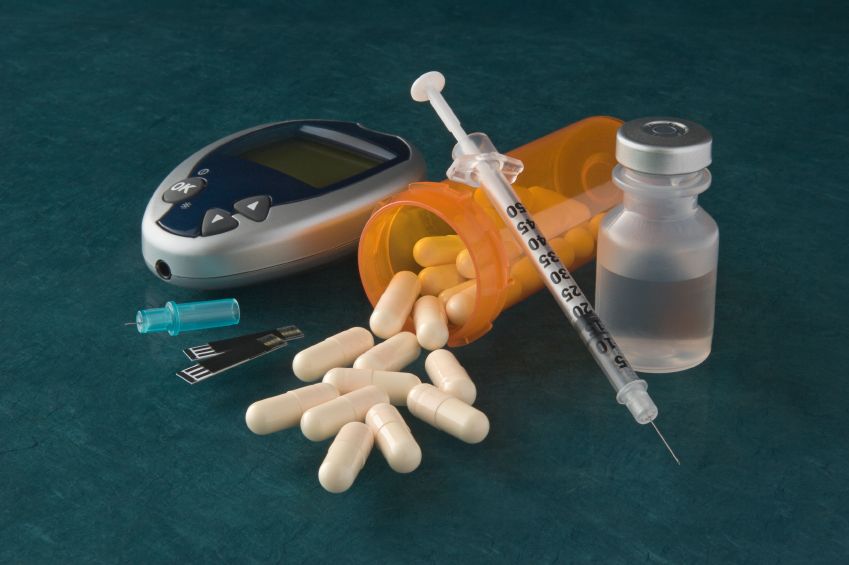Lockdowns Led to Increases in Weight, Anxiety But Improved Glucose Control in Diabetes Patients
An analysis of data from questionnaires sent to more than 400 patients from a diabetes clinic in Europe gives insight into the impact of lockdown measures on body weight, HbA1c control, and perceived levels of stress and anxiety.

Questionnaires from more than 400 patients with type 1 and type 2 diabetes are offering clinicians further insight into how the ongoing pandemic has impacted diabetics in regard to glycemic control, body weight, and stress levels.
Results of the study describe a situation where diabetics have experienced increases in stress, anxiety, and body weight, but no deterioration of glycemic control in patients with type 1 and type 2 diabetes during lockdown periods.
“We show that in people with relatively well controlled type 1 and type 2 diabetes the COVID-19 pandemic and lockdown measures increased stress and resulted in weight gain and less physical exercise during this short observational period. However, despite these factors no deterioration in glycemic control was observed,” wrote investigators.
To learn more about the effects of lockdown measures on various aspects of diabetes management, investigators from Leiden University Medical Center designed the current study as a short-term observational cohort study of patients treated at the outpatient diabetes clinic at the medical center. For inclusion in the study, patients needed to be at least 18 years of age and be sufficient enough in Dutch to perform fingerpicks and complete an online questionnaire.
Of note, patients were excluded if they were pregnant, diagnosed with a malignancy within the previous 6 months, were receiving immunotherapy or chemotherapy, or were admitted to a hospital or rehabilitation center. In total, 435 people were identified for inclusion in the current study—280 with type 1 diabetes and 155 with type 2 diabetes.
Of the 435 patients included in the study, 76.8% were using a basal-bolus regimen and 8.3% were using basal insulin only. In comparison to their counterparts with type 1 diabetes, patients with type 2 diabetes were on average 12.3 years older and had a higher BMI. Of the 435 included in the study, 399 completed the questionnaire on daily routines, physical activity, psychological stress, glycemic control, and medication use. For the purpose of analysis, HbA1c measurements during the lockdown were compared with the last known HbA1c prior to lockdown.
During the lockdown, 34.1% of respondents reported elevated stress—33.6% of type 1 diabetics and 35.1% of type 2 diabetics. Additionally, 27.3% of all participants reported increased levels of anxiety—27.5% of type 1 diabetics and 26.9% of type 2 diabetics. In analyses, changes in perceived stress was associated with a change in HbA1c (95% CI, 0.015-0.38; P=.034) but changes in anxiety levels were not associated with changes in HbA1c.
When assessing exercise and weight gain, investigators found 40.9% of patients reported weight gain and 45.7% reported getting less exercise during the pandemic. Investigators noted 12% of respondents reported losing weight and 10% reported more exercise. In an analysis, change in exercise or weight gain was not associated with changes in HbA1c.
In regard to glycemic control, there was improvements among those in the highest HbA1c tertile in both type 1 (-0.39% [-4.3 mmol/mol], P <.0001) and type 2 (-0.62% [-6.8 mmol/mol], P=.0036) diabetics. Further analysis indicated time in range was higher (60.5% vs 63.4%; P=.0009) and time above range was lower (34.6% vs 32.1%; P <.003) during the lockdown period than in the pre-lockdown period for the entire study cohort.
“Our short-term observational study shows that lockdown measures resulted in increased levels of perceived stress, weight gain and less exercise in both people with relatively well-controlled type 1 and type 2 diabetes, however this did not negatively impact glycemic control,” wrote investigators.
This study, “Increased stress, weight gain and less exercise in relation to glycemic control in people with type 1 and type 2 diabetes during the COVID-19 pandemic,” was published in BMJ Open Diabetes Research and Care.